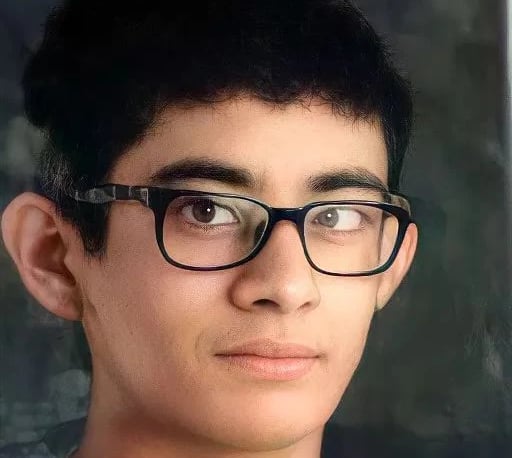Navigating the Dark Waters: The Tragic Case of Shuaiby Aslam
On March 14, 2018, 18-year-old Shuaiby Aslam livestreamed his own suicide in a haunting, 50-minute video that continues to echo through the darker corners of the internet. A quiet presence on 4chan’s /r9k/ board, Shuaiby left behind cryptic notes, a shotgun, and a digital graveyard of grief, speculation, and horror. This article explores the raw, disturbing reality of that night—not to glorify it, but to confront it. Through psychological descent, digital isolation, and the blurred line between community and collapse, we dive into a moment too real for comfort and too dark to forget. A warning: this isn't easy reading.
DISTURBING CASESGRIM REALITYNO HOPEOUR DREADFUL WORLDNSFW
8/8/20255 min read


Understanding the Context of Online Despair
On March 14, 2018, the internet was starkly reminded of the grim realities of mental health and the tragic consequences of despair when 18-year-old Shuaiby Aslam, known as shuaiby, broadcasted a live suicide on a platform linked to 4chan’s /r9k/ board. This event not only shocked viewers but raised critical conversations surrounding mental health associations with online communities that may cultivate environments of hopelessness.
4chan's /r9k/ board serves as an outlet for individuals who often deal with existential loneliness, societal rejection, and feelings of worthlessness. The anonymity provided by online platforms can lead to a blend of solidarity and alienation, resulting in a mixed bag of interactions. For many users, this virtual landscape can bolster unhealthy thought patterns, worsening pre-existing mental health issues.
⚠️ Content Warning
This article contains graphic descriptions of suicide, death, and psychological distress. It is not intended for sensitive readers. If you're struggling with suicidal thoughts, please seek help. You are not alone. Visit [findahelpline.com] or call 988 (U.S.) or iasp
THE BOY BEHIND THE SCREEN
He was 18. Just a kid. A quiet presence in the dark corners of the internet where lost souls gather—4chan’s /r9k/, the infamous robot board. His name was Shuaiby Aslam, but online, he was known simply as Shuaiby. He didn’t scream for attention. He didn’t beg for pity. But on March 14, 2018, he turned his webcam on—and gave the world a front-row seat to his final minutes on Earth.
For 50 minutes, the stream ran. A soft, almost eerie calm blanketed the room. Shuaiby sat on his bed. In the background, posters clung to the wall like silent observers. He looked hollow—his eyes empty, his movements slow. He wasn’t crying. He wasn’t yelling. He had already decided.
He was going to die, and he wanted people to watch.
THE CHAT BEGGED. HE STAYED QUIET.
The chat box lit up with desperate pleas. Friends and fellow users begged him to stop. One voice cracked under pressure, crying:
“Please don’t do it. Talk to us. We wanna help you.”
But he barely responded. His voice was low, flat, almost emotionless. He said he had about 15 minutes left—his family would be home soon. And when they walked through that door, he didn’t want them to see him still breathing.
He held a paper to the camera:
"Bye R9K, 3/14/18"
A goodbye to the place that raised him, ignored him, consumed him. A goodbye to the faceless crowd that had both mocked and comforted him.
Then he slipped a key and a handwritten note under the door. The note, reportedly, read:
“I am dead. Don’t let the kids see my body. Goodbye.”
There were children in the house.
THE SHOTGUN AND THE SILENCE
He reached behind him and pulled a shotgun into view. Cold steel in shaking hands. He looked at it like someone who had rehearsed every move. He cocked it. The sound was sharp. Final. He placed the barrel to his forehead. Sat on the edge of his bed. Took a breath.
Then he pulled the trigger.
The camera shook. A loud bang.
And then, nothing.
No movement. Just the image of his lifeless body, blood blooming across the walls. His skull cracked open like a melon. Brain matter and bone sprayed the ceiling. The gun slumped between his legs. His body sagged over the bed, lifeless, mouth open, eyes fixed on nothing.
THE MOTHER’S SCREAM
Moments later, there was a knock on the door. His mother. Her voice echoed through the room. She called his name once, then again—then opened the door.
Her scream was bloodcurdling.
The sound of a mother discovering her son’s exploded corpse is not something you forget. Her voice fractured into hysteria. She begged God. She dropped to the ground. The phone call to 911 came next. She was sobbing so hard the operator could barely understand her.
Paramedics arrived. Police entered. The camera continued to roll as they assessed the body, tried to comfort the mother, tried to understand what had happened. But the truth was plain: Shuaiby was gone. He had planned everything. And he had filmed it all.
THE AFTERMATH ON THE INTERNET
The video spread like wildfire. First on Discord, then Reddit, then shock sites. Reuploads popped up for months. People watched it the way you watch a car crash. Morbid fascination. Disgust. Some called it a performance. Others a tragedy. A few called it “based.” They laughed. They made memes. They joked about the way his body slumped. They timestamped the shot and shared gifs.
Because the internet never forgets. It monetizes pain.
It makes trauma into content.
For every person begging him to stop, a hundred more clicked to see if he’d actually go through with it. And he did.
He fucking did.
DEATH AS A LIVESTREAM
Shuaiby wasn’t the first. He won’t be the last.
But his suicide marked a new kind of horror—death as livestream. Real blood. Real brains. Real time. No edits. No blur.
People watched it in school, at work, in bed. And maybe they cried. Maybe they laughed. Maybe they kept scrolling like it was just another piece of cursed content to consume before lunch.
He didn’t want to be alone.
But he wasn’t looking for help.
He wanted witnesses.
He wanted his pain to be seen, not fixed.
WHY?
That’s the question everyone asks: why?
Shuaiby had posted before about feeling isolated. About being bullied. About loneliness, depression, and suicidal thoughts. He said he didn’t feel real. That life had become gray static. He once wrote:
“I don’t belong here. I don’t think I ever did.”
He wasn’t seeking fame. He wasn’t making a statement.
He just didn’t want to be forgotten.
And in a sick, tragic way, he got what he wanted.
THE PRICE OF WATCHING
You can still find the video if you dig hard enough. It’s out there. A 50-minute descent into hopelessness, ending in a single second of violent clarity.
But once you see it, you don’t forget it.
The blood. The silence. The mother’s scream.
It stays with you. It haunts you.
Because it's real.
Because it wasn’t a movie.
Because it could’ve been anyone.
Because there’s a part of you that knows—if someone had just gotten to him sooner, maybe he’d still be here.
But they didn’t.
And he isn’t.
THE LAST LIVESTREAM: THE DEATH OF SHUAIBY
⚠️ If you or someone you know is struggling with suicidal thoughts, there is help.
Please reach out to a mental health professional or call/text 988 (U.S.) or visit [findahelpline.com](https://findahelpline.com) for support in your country.
You are not alone.
The Aftermath: Seeking Help and Raising Awareness
The haunting silence after shuaiby’s act resonated deeply within the communities that witnessed it. It serves as a sobering reminder of the importance of mental health awareness and the necessity of seeking help. In the U.S., individuals struggling with similar feelings are encouraged to contact resources for support—dialing 988 or visiting findahelpline.com can connect them with professionals ready and willing to assist. This conversation must evolve beyond stigma and lead to proactive interventions that prioritize mental health.
As we reflect on this tragic event, let us foster environments, both online and offline, that encourage dialogue around mental health and destigmatize the sources of pain. Those grappling with distress need to know they are not alone and that options for help exist. Remember, it’s okay to seek help and to extend support to those in need.
Despair
A dark exploration of societal decay and despair.
Void
+1234567890
© 2025. All rights reserved.
Any comments, business inquiries, ideas, or stories, let us know
